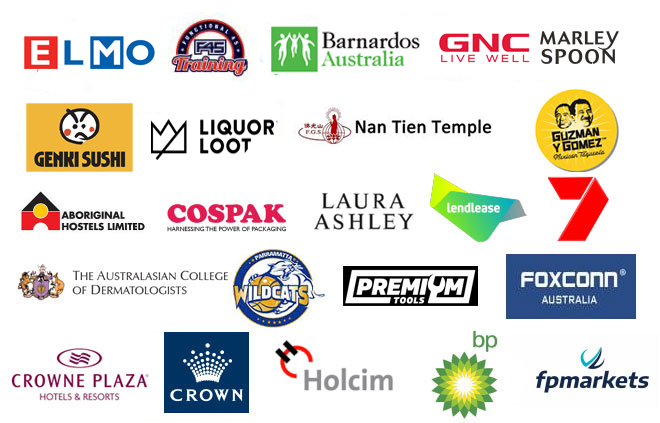10. What are the best CCTV camera placements for optimal security in a dental clinic?
Proper CCTV camera placement is essential for maximising coverage, deterring threats, and ensuring compliance with privacy regulations. Recommended placements include:
- Clinic Entrance & Reception Area – Monitors visitor flow and records entry/exit activity.
- Waiting Rooms – Enhances patient safety and helps monitor staff interactions.
- Hallways & Corridors – Provides visibility into movement between treatment rooms and restricted areas.
- Storage & Pharmaceuticals Room – Protects controlled substances and medical supplies from theft.
- Staff-Only Areas – Ensures restricted areas are accessed by authorised personnel only.
- Clinic Car Park & Exterior Doors – Prevents unauthorised access and records suspicious activity.
Placement Considerations:
- Avoid treatment rooms to maintain patient privacy.
- Use wide-angle cameras for maximum coverage in hallways.
- Install cameras at entry points for clear face identification.
- Consider cameras with IR night vision for after-hours monitoring.
A well-planned CCTV system enhances security, ensures staff and patient safety, and protects valuable assets.
9. How do automatic security notifications improve safety?
Modern alarm and CCTV systems can send real-time notifications to designated personnel.
- Instant mobile alerts if motion is detected after hours.
- Live notifications for access control breaches.
- Remote alarm arming and disarming via mobile apps.
- Tamper detection alerts if a camera or sensor is disabled.
This ensures that security threats are addressed immediately, reducing the risk of incidents.
8. How does a panic button system work in a dental clinic?
A panic button system provides an immediate alert to security personnel or emergency responders.
- Wireless or fixed buttons can be placed at reception and treatment rooms.
- Silent alarms can discreetly notify law enforcement of an emergency.
- Integration with CCTV allows security teams to visually verify the situation before responding.
This feature is critical for protecting staff and patients in high-risk situations.
7. How does AI-powered CCTV benefit dental clinics?
AI-powered CCTV uses smart analytics to enhance security by:
- Facial recognition – Identifies authorised staff and VIP patients.
- Motion detection alerts – Reduces false alarms by ignoring irrelevant movement.
- License plate recognition (LPR) – Tracks vehicles entering the clinic’s car park.
- Intrusion detection – Alerts security when unauthorised movement is detected after hours.
This improves overall clinic security while minimising manual monitoring efforts.
6. How can access control systems enhance security in a dental clinic?
Access control systems help manage who enters restricted areas, ensuring only authorised personnel can access:
- Treatment rooms with sensitive equipment.
- Medical storage containing pharmaceuticals and controlled substances.
- Staff-only zones and administrative offices.
Types of access control include:
- Biometric scanners (fingerprint or facial recognition).
- Keycard or fob-based access.
- PIN-coded entry systems.
This prevents unauthorised access and ensures regulatory compliance.
5. What alarm systems are best suited for dental clinics?
Dental clinics benefit from multi-layered alarm systems that provide real-time alerts for:
- Intrusion detection – Motion sensors and glass-break detectors.
- Access control breaches – Alarms triggered when unauthorised personnel enter restricted areas.
- Fire & smoke alarms – Ensuring compliance with safety regulations.
- Panic alarms – Quick response buttons for staff in emergencies.
These alarms can be integrated with CCTV to provide live verification of threats.
4. Can I monitor my dental clinic remotely?
Yes, modern IP-based CCTV systems offer remote access via mobile apps and desktop software. This allows clinic managers and owners to:
- View live footage from anywhere.
- Receive instant motion-detection alerts.
- Review recorded footage to investigate any incidents.
This feature is especially useful for after-hours monitoring and compliance checks.
3. How does two-way audio improve security in a dental clinic?
Two-way audio cameras allow real-time communication between staff and visitors, improving security by:
- Deterring unauthorised individuals with voice warnings.
- Allowing remote communication with after-hours delivery personnel.
- Enhancing patient experience by providing a hands-free communication system at reception and entry points.
2. What type of CCTV cameras are best for monitoring a dental clinic?
For dental clinics, the best CCTV cameras offer high-definition clarity, remote access, and smart analytics. Recommended options include:
- Dome cameras – Ideal for waiting rooms and hallways.
- Fixed bullet cameras – Used for entrances and exits.
- Pan-Tilt-Zoom (PTZ) cameras – Adjustable for wide-angle monitoring.
- Covert cameras – Small, discreet cameras for added privacy in reception areas.
A combination of these ensures full coverage and enhanced security in different areas of the clinic.
1. Why is security important for dental clinics?
Dental clinics store valuable equipment, controlled substances, and confidential patient records, making them a target for theft and unauthorised access. A comprehensive security system ensures compliance with privacy laws, protects assets, and provides a safe environment for staff and patients.


